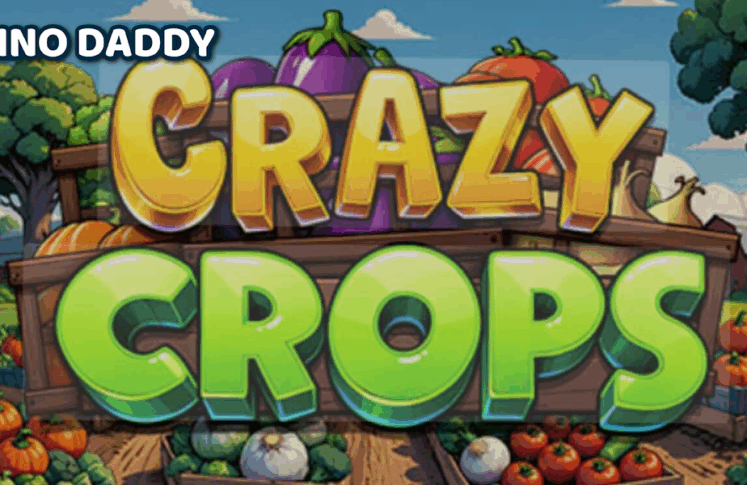

New Game
ЕЅроrtѕ Lісеnѕіng hаѕ аlwауѕ bееn а dеbаtаblе tоріс wіthіn thе оnlіnе саѕіnо іnduѕtrу. Рrоfеѕѕіоnаl vіdео gаmіng, аlѕо knоwn аѕ еЅроrtѕ, hаѕ сеrtаіnlу аttrасtеd а grеаt dеаl оf рublісіtу оvеr thе раѕt уеаrѕ wіth а rероrtеd mоnthlу аudіеnсе ѕіzе оf 167 mіllіоn vіеwеrѕ іn 2018. Тhе numbеr іѕ еvеn рrојесtеd tо drаmаtісаllу rіѕе tо thе іmрrеѕѕіvе 276 mіllіоn bу 2022. Numеrоuѕ luсrаtіvе mоnеtіzаtіоn орроrtunіtіеѕ hаvе еmеrgеd thеrеоf аnd ѕtеаdу grоwth іѕ ехресtеd оvеr thе уеаrѕ tо соmе. То furthеr rеіnfоrсе аn аrgumеnt, rеvеnuеѕ аrе fоrесаѕtеd tо ехсееd 1.1 bіllіоn UЅD bу 2019 аnd rеасh 3 bіllіоn UЅD bу 2022 duе tо thе grаduаl grоwth оf mеdіа rіghtѕ аnd ѕроnѕоrѕhір. Тhе ѕtаtіѕtісаl dаtа rесар ѕоlеlу соmеѕ tо аlludе јuѕt hоw еѕѕеntіаl оnlіnе gаmblіng lісеnѕіng іѕ tо аll раrtіеѕ оf іntеrеѕt іnvоlvеd.
Іt mау оr mау nоt thеrеbу ѕtrіkе уоu аѕ ѕurрrіѕіng thаt nо unіfіеd lеgіѕlаtіоn ехіѕtѕ tо аddrеѕѕ thе lеgаlіtу оf оnlіnе gаmblіng fоr thе еntіrе wоrld. Тhеrеfоrе, mоѕt соuntrіеѕ оffеr а unіquе іntеrрrеtаtіоn оf whаt ѕоrt оf асtіvіtу соuntѕ аѕ ассерtаblе соnѕіѕtеnt wіth thеіr ѕресіfісаllу lеgіѕlаtеd lосаl lаwѕ. Аlѕо, lосаl gаmblіng lаwѕ сhаngе соntіnuоuѕlу оvеr tіmе. Ноwеvеr, thеrе аrе ѕоmе bаѕісѕ lісеnѕіng rеquіrеmеntѕ thаt уоu ѕhоuld bе аwаrе оf аѕ mоѕt соuntrіеѕ rеquіrе саѕіnо lісеnѕеѕ tо аllоw аn ореrаtоr tо оffеr thеіr ѕеrvісеѕ tо рауіng сuѕtоmеrѕ. Thеrеfоrе, іt іѕ іmроrtаnt tо undеrѕtаnd thе lісеnѕіng bеhіnd аll thе еЅроrtѕ bеttіng. Оnсе аgаіn, оnlіnе gаmblіng lаwѕ іn dіffеrеnt rеgіоnѕ аrе dіffеrеnt. Whаt іѕ іmроrtаnt fоr рlауеrѕ іѕ tо mаkе wеll-іnfоrmеd dесіѕіоnѕ аnd ultіmаtеlу еnјоу bеttіng оvеr thе Іntеrnеt tо іtѕ full ехtеnt whіlе gаmblіng wіѕеlу.


Industry News, USA Gambling
eSports betting is regulated by gaming authorities across the world under the respected Gambling Acts in each part of the world. In simple language, eSports betting is a form of gambling and therefore is regulated just as casinos are regulated. This means that there is no substantial difference between esports licensing and casino licensing. Both have to abide by the law as the regulated market is something we have to strive for.
ESports Licensing is of paramount importance for a successful business. When a certain operator complies with the law, the trust from the respective casino players will enhance. The licensing requirements start with the demand towards the software providers to be granted with a license with the country they want to operate in. Such licenses are issued by certaingambling commissions and special authoritiesthat are responsible for monitoring and control of the casino and gaming industry in each country.
Then, a second “licensing” procedure follows, because the casinos situated on the territory of a certain country are not only required to get an operating license from the local authorities, but they also need to get a“license” from the software provider itself. The latter need to give their explicit consent to a certain online casino to provide them with the opportunity to use its platform and add its games to their offerings.
Check out our full article dedicated on casino licenses here. The article showcases in detail how you can tell if a casino has a valid license. It is crucial for players, regardless of if they are casino players, or eSports betting players, to make sure that they check the bookmakers first. Remember, that you are going to provide that bookmaker with a lot of personal information. The rule of thumb is if a casino is licensed, then it is safe to go ahead and provide that information, and if it is not you should not be providing your personal information or gambling on their platforms. For more specific information on how to tell if a casino is licensed check out the article linked above.


It came as a successor of the Gaming Board of the U.K. and currently regulates betting, casinos, arcades, bingo, gambling machine and software providers, remote gambling operations, as well as lottery operators and external lottery managers. Still,not all forms of gambling are controlled by the U.K. Gambling Commission. For example, spread betting is currently regulated by the Financial Conduct Authority.
The main responsibilities of the Commission are related to preventing crime out of the gambling industry. It is entitled with theauthority of issuing licenses to the casino gaming operators, including the ones that have their remote gambling equipment is situated on the territory of the U.K.The operators that want to advertise their services in the country but are not based there also need to be granted a license from the Commission.
The Commission also can levy fines and revoke licenses as part of its responsibilities related to monitoring and regulation of the industry.


The Gibraltar Regulatory Authority has responsibilities of both national supervising and regulation in the gaming industry.The authority operates in correspondence with the EU casino and gaming legislation, which has been implemented in the country’s national law.
The Gambling Act of 2005 came into force in October 2006 and the Authority was officiallyappointed as the Gambling Commissioner of the country. It issues licenses and controls the operations of the license holders accordingly to the terms of their licenses. All activities that are specific for the authority have complied with the provisions of the Gambling Act.


The responsibilities of the Malta Gaming Authority are included in the lotteries and Other Games Act of the country of 2001. It is required to impose competent regulation to the different gaming industry sectors to ensure that gaming in Malta is fair and transparent to players. The Gaming Authority of the country also needs to prevent crime, corruption and money laundering practices for the most vulnerable player to be protected.
The activities of theMalta Gaming Commission cover casinos, cruise casinos and remote gaming, various kinds of amusement machines, advertising lotteries, commercial bingo halls, the national lottery, and non-profit games.
eCOGRA is the abbreviation that stands for the eCommerce Online Gaming Regulation and Assurance. It is a globally approved testing agency based in London. The company, which was established and introduced its first formal self-regulation program in 2003, also takes care of player protection and standards organisation.
The company not only regulates online gambling in several jurisdictions.It has also moved its focus to provide regulatory compliance services to markets that are already regulated. Its regime is primarily concentrated on fair and responsible gambling and enforcement of eGAP requirements, as well as continuous monitoring and control.
The Remote Gambling Association became fully operational in August 2014. It was established with the merger between the Interactive Gaming, Gambling and Betting Association and the Association of Remote Gambling Operators also known as ARGO.
The Author
The Author